Kia Stonic vs Tesla Model 3 - Differences and prices compared
Costs and Efficiency:
Price and efficiency are key factors when choosing a car – and this is often where the real differences emerge.
Kia Stonic has a decisively advantage in terms of price – it starts at 20100 £, while the Tesla Model 3 costs 34300 £. That’s a price difference of around 14143 £.
Engine and Performance:
Power, torque and acceleration are the classic benchmarks for car enthusiasts – and here, some clear differences start to show.
When it comes to engine power, the Tesla Model 3 has a clearly edge – offering 460 HP compared to 115 HP. That’s roughly 345 HP more horsepower.
In acceleration from 0 to 100 km/h, the Tesla Model 3 is clearly quicker – completing the sprint in 3.10 s, while the Kia Stonic takes 10.70 s. That’s about 7.60 s faster.
In terms of top speed, the Tesla Model 3 performs clearly perceptible better – reaching 262 km/h, while the Kia Stonic tops out at 182 km/h. The difference is around 80 km/h.
There’s also a difference in torque: Tesla Model 3 pulls decisively stronger with 660 Nm compared to 200 Nm. That’s about 460 Nm difference.
Space and Everyday Use:
Whether family car or daily driver – which one offers more room, flexibility and comfort?
Seats: offers more seating capacity – vs .
In curb weight, Kia Stonic is clearly lighter – 1205 kg compared to 1822 kg. The difference is around 617 kg.
In terms of boot space, the Tesla Model 3 offers convincingly more room – 594 L compared to 352 L. That’s a difference of about 242 L.
When it comes to payload, Kia Stonic distinct takes the win – 445 kg compared to 333 kg. That’s a difference of about 112 kg.
Who wins the race?
The Tesla Model 3 proves to be wins the duel decisively and therefore becomes our DriveDuel Champion!
Tesla Model 3 is the better all-rounder in this comparison.
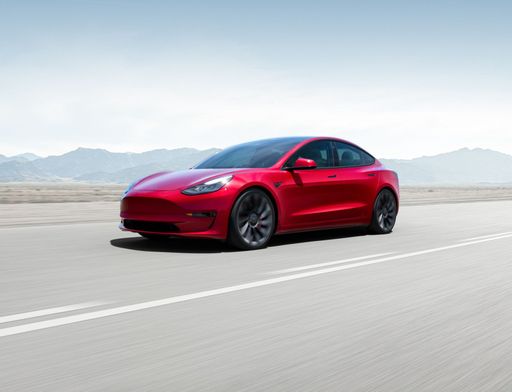 @ Tesla, Inc.
@ Tesla, Inc.
Tesla Model 3
Costs and Consumption
View detailed analysis
Engine and Performance
View detailed analysis
Dimensions and Body
View detailed analysis
Kia Stonic
The Kia Stonic is a sprightly compact crossover that mixes city-friendly agility with a cheeky, modern design — perfect for buyers who want style without sacrificing sense. Inside it serves up clever practicality and a bright, well-equipped cabin, making everyday driving feel a bit more fun than it has any right to be.
details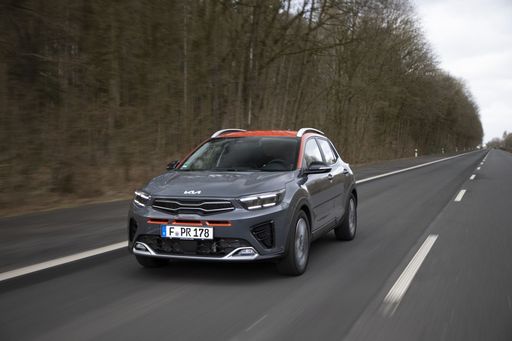 @ Kia Corporation
@ Kia Corporation
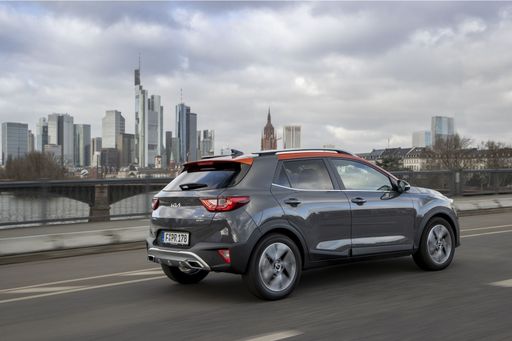 @ Kia Corporation
@ Kia Corporation
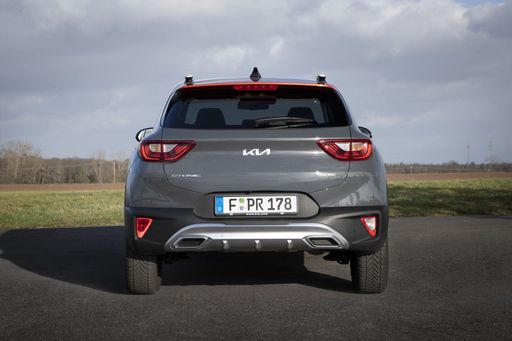 @ Kia Corporation
@ Kia Corporation
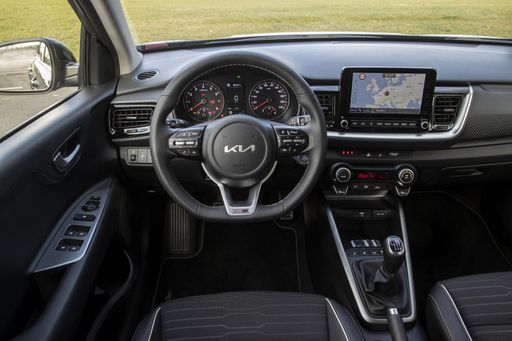 @ Kia Corporation
@ Kia Corporation
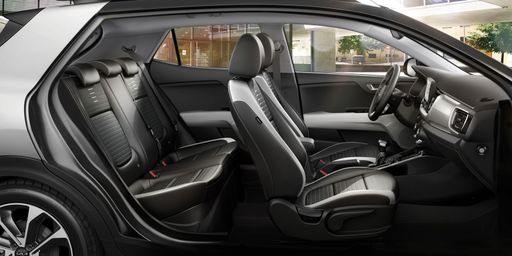 @ Kia Corporation
@ Kia Corporation
Tesla Model 3
The Tesla Model 3 slices through daily commuting with a silent, confident shove that makes petrolheads reassess their life choices, while its minimalist cabin feels more like a slick gadget gallery than a traditional car interior. For buyers after a fuss-free, tech-forward electric with plenty of grin factor and low running drama, it’s hard to beat—just don't be surprised when the car updates itself overnight.
details @ Tesla, Inc.
@ Tesla, Inc.
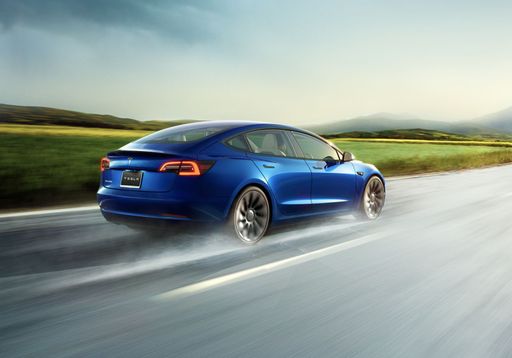 @ Tesla, Inc.
@ Tesla, Inc.
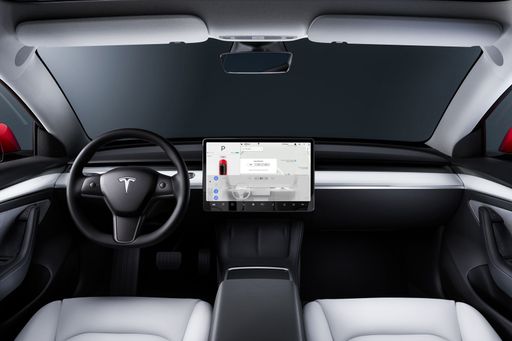 @ Tesla, Inc.
@ Tesla, Inc.
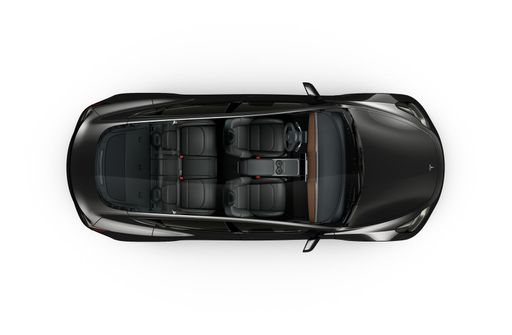 @ Tesla, Inc.
@ Tesla, Inc.
 @ Kia Corporation
@ Kia Corporation
|
 @ Tesla, Inc.
@ Tesla, Inc.
|
|
|
|
Costs and Consumption |
|
|---|---|
|
Price
20100 - 26600 £
|
Price
34300 - 50100 £
|
|
Consumption L/100km
5.6 - 5.9 L
|
Consumption L/100km
-
|
|
Consumption kWh/100km
-
|
Consumption kWh/100km
13.2 - 16.7 kWh
|
|
Electric Range
-
|
Electric Range
550 - 750 km
|
|
Battery Capacity
-
|
Battery Capacity
64.5 - 83 kWh
|
|
co2
127 - 133 g/km
|
co2
0 g/km
|
|
Fuel tank capacity
45 L
|
Fuel tank capacity
-
|
Dimensions and Body |
|
|---|---|
|
Body Type
SUV
|
Body Type
Sedan
|
|
Seats
5
|
Seats
5
|
|
Doors
5
|
Doors
4
|
|
Curb weight
1205 - 1270 kg
|
Curb weight
1822 - 1929 kg
|
|
Trunk capacity
352 L
|
Trunk capacity
594 L
|
|
Length
4165 mm
|
Length
4720 - 4724 mm
|
|
Width
1760 mm
|
Width
1850 mm
|
|
Height
1520 mm
|
Height
1431 - 1440 mm
|
|
Max trunk capacity
1155 L
|
Max trunk capacity
-
|
|
Payload
440 - 445 kg
|
Payload
303 - 333 kg
|
Engine and Performance |
|
|---|---|
|
Engine Type
Petrol, Petrol MHEV
|
Engine Type
Electric
|
|
Transmission
Manuel, Automatic
|
Transmission
Automatic
|
|
Transmission Detail
Manual Gearbox, Dual-Clutch Automatic
|
Transmission Detail
Reduction Gearbox
|
|
Drive Type
Front-Wheel Drive
|
Drive Type
Rear-Wheel Drive, All-Wheel Drive
|
|
Power HP
100 - 115 HP
|
Power HP
283 - 460 HP
|
|
Acceleration 0-100km/h
10.7 - 12.1 s
|
Acceleration 0-100km/h
3.1 - 6.1 s
|
|
Max Speed
179 - 182 km/h
|
Max Speed
201 - 262 km/h
|
|
Torque
172 - 200 Nm
|
Torque
420 - 660 Nm
|
|
Number of Cylinders
3
|
Number of Cylinders
-
|
|
Power kW
74 - 85 kW
|
Power kW
208 - 338 kW
|
|
Engine capacity
998 cm3
|
Engine capacity
-
|
General |
|
|---|---|
|
Model Year
2025
|
Model Year
2025
|
|
CO2 Efficiency Class
D
|
CO2 Efficiency Class
A
|
|
Brand
Kia
|
Brand
Tesla
|
Is the Kia Stonic offered with different drivetrains?
The Kia Stonic is offered with Front-Wheel Drive.
The prices and data displayed are estimates based on German list prices and may vary by country. This information is not legally binding.
